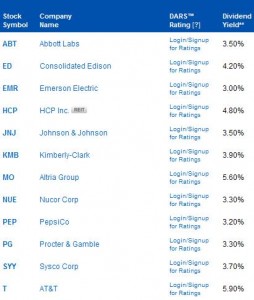Can you imagine winning $209,966,435.24 cash after tax once in your lifetime? Someone in Rhode Island has been fortunate to accomplish this feat just few days ago.
Do you know that 70% of lottery winners squander their new-found wealth in just few years? How can someone file for bankruptcy after winning such an astronomical sum? It’s a subject worth pondering about.

Lack of financial knowledge plays villain’s role in sabotaging the fortune of these luckiest people on earth. You really don’t have to be a financial wizard to manage your new-found wealth. With all the modern financial tools at your disposal, it’s impossible to lose millions of dollars.
What would you do with your fortune to make sure that you don’t become an inductee of the fortune loser club?
I bought one lottery ticket with the hope to prove that not every lottery winner is a loser. But, I am not even lucky enough to get a chance to prove my mettle. Nonetheless, I’ve decided to give my two cents worth of advice to the lucky winner of Rhode Island.
I would allocate one-third amount of the cash to three different portfolios — Commercial Real estate (30%); High yielding dividend stocks(30%); Bonds, Money Market funds & Certificate of deposit(30%) ;and, Charity(10%).
1. Commercial real estate
 If you have $70,000,000 to invest in commercial real estate, investment in upscale hotels can provide many tax benefits and a great source of passive income for the rest of your life.
If you have $70,000,000 to invest in commercial real estate, investment in upscale hotels can provide many tax benefits and a great source of passive income for the rest of your life.
I have invested in hotels. So, I know that excellent hotel investments generate 10% or higher capitalization rate. Capitalization rate is the ratio between the net operating income produced by an asset and invested capital.
If you invest $35,000,000 in a high-end full service hotel, you can expect the hotel to generate net operating income of $3.5 million a year at 10% capitalization rate. You can own 20 hotels in different parts of the country to generate staggering $70 million net operating income every year.
Your hotels are not only generating fat cash flow, but also appreciating in value to make you richer as years go by. You are also increasing equity stake by paying down mortgage in these income producing properties.
2. High yielding dividend stocks
 You can invest in the finest of American fortune 500 companies that are paying more than 3% dividend for 25 years or more.
You can invest in the finest of American fortune 500 companies that are paying more than 3% dividend for 25 years or more.
You can’t go wrong with the dividend yield of more than what you can get from your savings or money market account in addition to 5-10% stock appreciation over the long haul.
If you take $70,000,000 and invest equal amount of $5.83 million in each of these companies, you can expect annual return in excess of $56,000,000 at 8% average without a great deal of risk.
Most of these companies have been in business for over 100 years. They have consistently paid dividend to shareholders for more than 25 years during the worst and best of economic cycles.
You can also reinvest dividend to purchase more shares every year.
compound interest is one of the most powerful forces in the universe. — Albert Einstein
3. Money market funds, Bonds & Certificate of Deposits
 You are lending money to Uncle Sam, General Electric or City of New York when you buy bond. There is always risk that you may not get paid back based on the creditworthiness of the borrower.
You are lending money to Uncle Sam, General Electric or City of New York when you buy bond. There is always risk that you may not get paid back based on the creditworthiness of the borrower.
The good news is that diligent folks at Standard & Poor’s and Moody’s are doing scrupulous work of rating creditworthiness of all major borrowers. All you need to know is to select borrower with triple-A(AAA) credit rating before you buy its bond.
Buy non-callable bonds from borrowers with AA or AAA credit ratings for long-term. Bond prices go down when interest rates go up. So, there is a risk that you may lose money when you sell them but risk is limited with creditworthy borrowers.
Money market funds are mutual funds that invest your deposit with hundreds of millions of dollars more in short-term blue chip government and corporate bonds. Like a regular checking account, you can write checks on your account. So, they are essentially checking accounts that pay interest. Money market funds pay on average more interest than regular savings account but less than certificate of deposits.
4. Charity

You are not obligated to give away your wealth to any charity but, giving back does pay dividends.
IRS allows tax benefits for making a charitable gift to a Section 501(c)(3) organization (IRS code for a tax-qualified charity, an organization like the American Red Cross, American Cancer Society, AmeriCares, the Salvation Army, or a slew of other organization to which you can make tax-deductible gifts).
Never give money to any organization that spends more than 20 percent of donations on administrative cost. Or if the organization has not filed form 990, you may not want to consider them for charity.
Surplus wealth is a sacred trust which its possessor is bound to administer in his lifetime for the good of the community. — Andrew Carnegie
Final Thoughts:
“Without that goal or plan about what you expect to happen for yourself … it could be your worst nightmare.” — Psychologist Steve Danish, a professor of psychology at Virginia Commonwealth University, has studied the impact instant wealth has on lottery winners.
You and I are not lucky few to have millions to invest in hotels or stocks and other instruments with the lottery windfall. But, don’t we all have to learn how to become good Stewart of our money? It doesn’t matter if you have few dollars or millions to invest. What matters most is your desire to master essential financial knowledge to squirrel away every single dollar for your strong financial future.
Do you have any advice for the millionaire of Rhode Island?




